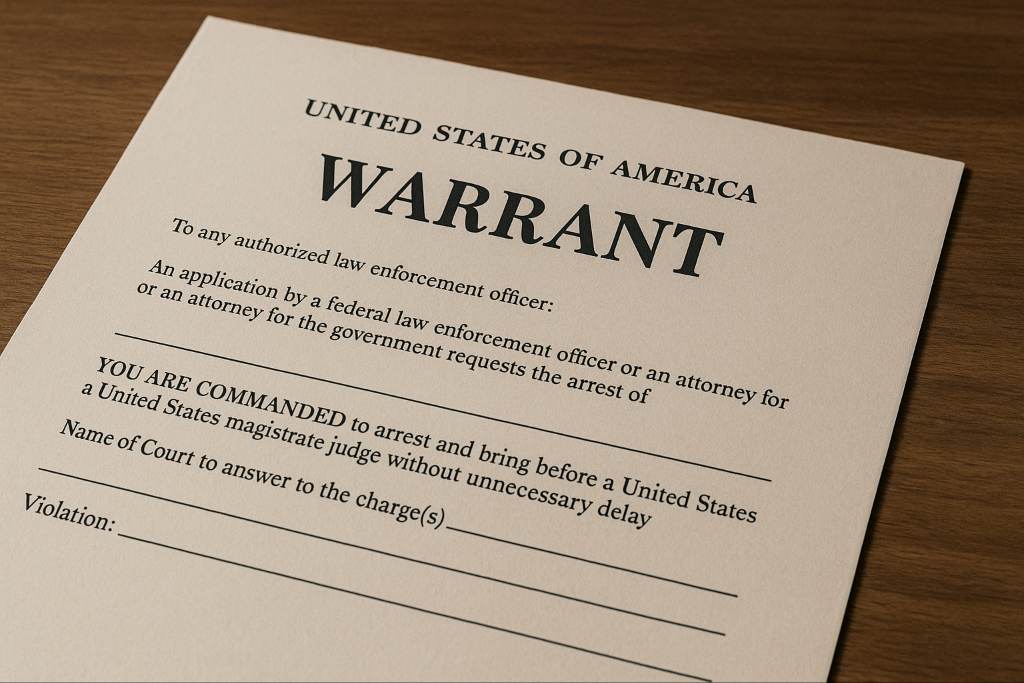
How Long Does It Take to Get a Warrant? Timeline from Incident to Issuance
Written on September 22, 2025. Posted In Blog, Warrant
Understanding how long it takes to get a warrant can bring real relief when you’re facing uncertainty. A warrant is a judge’s legal approval allowing law enforcement to act, whether it means arresting someone or conducting a search. Typically, this process takes anywhere from a few hours in urgent cases to several days or even weeks, depending on the complexity of the investigation or its backlog. Knowing what influences the speed of the process helps ease stress and gives you more control in a challenging situation.
Typical Timeline for a Warrant Key Stages Explained
Below is an overview of what usually happens from the moment an incident is reported until a warrant is issued. Understanding this timeline can ease uncertainty and give you a clearer sense of what comes next.
1. Incident Reported
This is when someone contacts the police to report a crime or incident. It may happen immediately after the event, or sometimes there’s a delay if the incident wasn’t discovered right away. The timing of this step depends entirely on when the report is made.
2. Police Investigation
In this stage, investigators gather enough evidence to support a warrant. How long this takes varies significantly depending on:
- Complexity of the Case: Simple matters may move quickly; complicated ones require more time to sort through the details.
- Evidence Gathering: Collecting items such as witness statements or forensic data can require several days or longer.
- Availability of Officers: If investigators are stretched thin, gathering evidence may take more time.
- Jurisdiction Workload: Busy police or court systems can slow down the process.
3. Arrest (If Made Before a Warrant)
If officers already have probable cause, such as witnessing a crime, they might make an arrest without a warrant. In that case, the person must be brought before a judge for a probable cause determination, generally within 48 hours of arrest.
4. Presentation to Prosecutor or Judge
This step happens in two different scenarios:
If an Arrest has Occurred
Officers present the case, with a sworn statement and evidence, to a prosecutor or judge. That review commonly occurs within 24 to 48 hours of arrest, provided the court is working. Holidays or weekends may lead to delays.
If NO Arrest Yet
Law enforcement submits a sworn statement and warrant request directly to a judge for review. If probable cause is clearly established in writing, the judge can issue the warrant, even before any arrest, allowing the process to move forward. This can be efficient when investigators have already completed evidence gathering.
5. Decision and Warrant Issuance
If a judge agrees there’s probable cause, they sign the warrant. It may be issued the same day, even within hours, in urgent cases. If issued outside regular business hours, it may be held until the next business day, depending on court availability.
Factors That Influence How Long It Takes to Get a Warrant
Although each case is unique, here are some clear reasons why timing may vary, and why understanding what’s at play is helpful.
Severity of the Alleged Offense
More serious crimes tend to get faster attention. Violent cases are prioritized, while minor property offenses may move more slowly.
Quality of the Initial Report
Having accurate facts and a detailed account helps officers build a strong warrant request more quickly.
Jurisdiction Caseload
High volume in police or prosecutor’s offices can cause things to move more slowly when they have limited resources.
Availability of Judges or Prosecutors
If decision-makers are occupied or off duty, the process can stall until someone reviews the case.
Holidays or Weekend Timing
Courts operate on business hours. Weekends, holidays, or other closures often result in delayed warrant issuance.
What You Can Do While Waiting for a Warrant to Be Issued
Waiting doesn’t have to feel like being left in the dark. Here are steps you can take while the process unfolds.
-
Stay Reachable
Make sure you’re available by phone. Officials may reach out for more information or to inform you once the warrant is issued.
-
Contact an Attorney if Needed
Having legal advice early helps you understand what your options are and how to respond once a warrant is issued.
-
Prepare Your Support Network
Let trusted people know what’s happening. You don’t have to face this alone, and they can help keep you grounded.
-
Stay Calm and Informed
Peace of mind matters. Free at Last Bail Bonds offers 24/7 support and immediate bail processing once a warrant leads to an arrest. Staying calm allows you to make steady choices, and with a bondsman ready to act quickly, you can move forward without unnecessary delays.
Free at Last Bail Bonds Is Here When You Need Help Most
Discovering a warrant can feel overwhelming, but you do not have to face it alone. Free at Last Bail Bonds offers around-the-clock care, immediate bail bond processing, and guidance that helps ease the stress of the moment. We stand with you to make the path forward feel more manageable.
Reach out today for compassionate bail bond help you can rely on.

